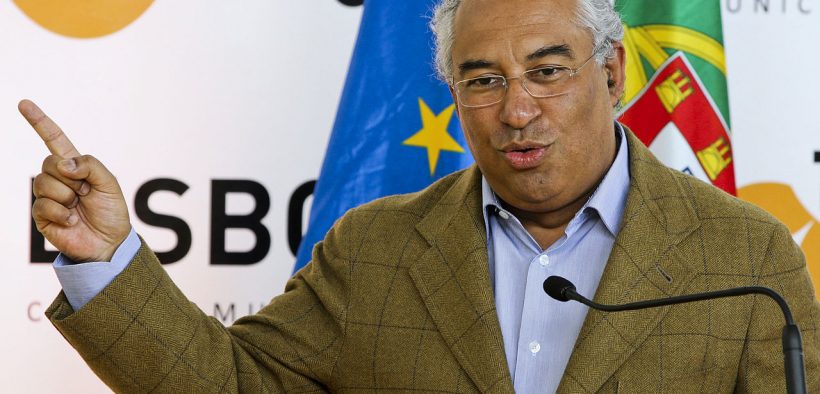In Rebuke to Rise of Far-Right, Portugal’s Socialist Party Wins Big

Portugal’s Socialist Party won big over the weekend, overcoming recent corruption scandals and a rising tide of right-wing populism in Europe.
Portugal’s Socialist Party won the most votes in Sunday’s general election, granting prime minister António Costa another four years to lead a left-wing coalition after managing to balance economic growth, deficit reduction, and the reversal of austerity measures in his previous term despite doubts that his leftist government would overspend.
“The Socialist Party has clearly won this election and strengthened its position. Stability is essential for Portugal’s international credibility and for attracting investors,” said Costa. “We will strive to find solutions that ensure this stability for the entire legislature.”
Portugal’s Socialist Party Offers an Attractive Alternative to Austerity
The center-left Socialists won 106 seats in the 230 seat assembly, gaining from the 86 seats they held in the last parliament but falling short of an absolute majority. The center-right Social Democrats took only 77 seats, their worst result since 1983, still being broadly associated with austerity cutbacks and a recession that occurred when they were in power. Costa will seek to continue working with the far-left parties he formed an informal alliance with in his last term, where they worked together on raising the minimum wage and improving social services.
“We showed that you can improve public finances and improve living conditions for the public at the same time,” João Galamba, Costa’s secretary of state for energy, told the Atlantic’s Vincent Bevins. “And we showed the Portuguese people that being in the European Union doesn’t only have to mean cuts.”
In a time of nationalist and anti-immigrant ascendance in Europe, the far-right won only a single seat in Portugal’s election, providing hope to left-of-center factions across the continent after years of struggle amidst the refugee crisis and European debt crisis.
“Portuguese society again chooses stability, equality and social justice,” said Pedro Sánchez, the Spanish prime minister. “With the victory of the Socialist party, they are betting on a project of the left, progressives and modernizers. Let’s continue working together for a fairer Europe.”
Sánchez, whose Socialist party has failed to form a stable coalition akin to Portugal’s, has spoken of his desire to replicate Portugal’s model by forming an alliance with Spain’s leftist Podemos party. While Sánchez is facing an uncertain general election next month, the center-left has seen modest gains in Sweden, Denmark, and Finland in recent years, and Italy’s center-left Democrat party returned to power last month after a blunder by far-right populist leader Matteo Salvini.
How Portugal’s Socialist Party Won
Political analysts attribute the success of Portugal’s left to its strong ties with working-class groups, which have shifted towards right-wing populism in other countries, as well as the memory of the right-wing dictatorship that lasted until 1974. Others note that Portugal has received a smaller amount of refugees than other European countries more vulnerable to right-wing populism.
The Guardian’s Jon Henley notes that polls showed the Portuguese Socialists could have won a majority, but their support was hurt by multiples scandals including “the former Socialist defence minister, José Azeredo Lopes, being charged with abuse of power and denial of justice over his role in the alleged cover-up of a 2017 arms theft.” Voter turn out was a record low with a 45.5% abstention rate.
Still, Costa and his government’s finance minister have been praised domestically and in Brussels for providing a successful alternative to the austerity-focused approach that defined the European Union’s response to the continent’s debt problems.
“European unity is more needed now than ever,” European Council President Donald Tusk said in a congratulation to Costa, “and I trust that your government will continue playing a constructive role in the most relevant themes such as the climate emergency, trade conflicts, our multi-year budget, migration, the completion of the Economic and Monetary Union as well as Brexit.”







